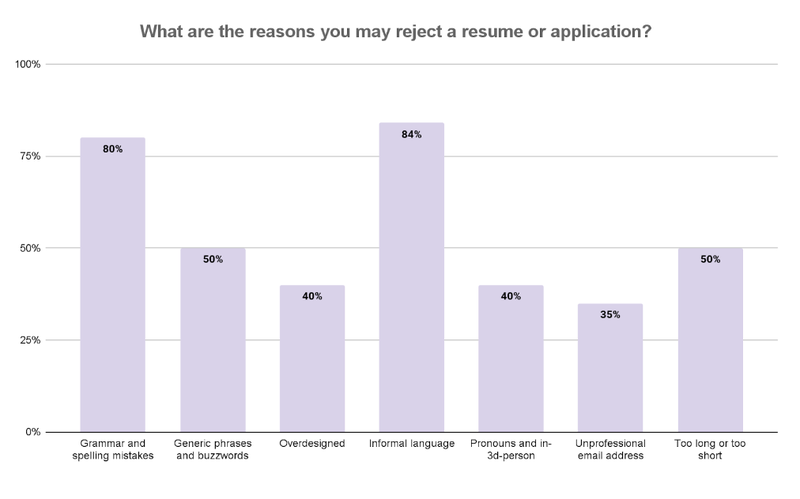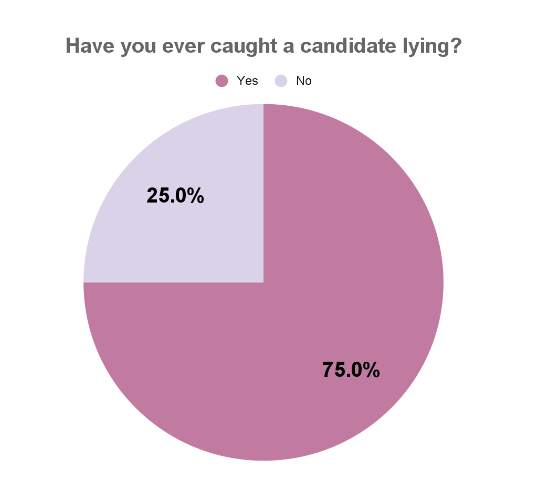Today, the job market is highly competitive, so the search for employment resembles a battlefield. In such an environment, your resume is a powerful weapon. You want your resume to be more than just a piece of paper; you want it to act as a magnet for potential employers. However, there are many mistakes to be aware of, making it hard to navigate this minefield. In this article, we will look at the most common mistakes and provide solutions on how to rectify or avoid them.

Mistake 1: Generic Phrases and Empty Descriptors
"Communicative, responsible, goal-oriented..." What could be worse than a resume filled with clichéd words and empty phrases? When employers encounter such generic characteristics, they may perceive it as a lack of effort and preparation on your part. Your resume could end up lost in a sea of others, fading into the background like a whisper in a crowded room.
Solution:
To address the issue of using typical phrases and empty descriptors, aim to be more specific and concrete in your formulations. Instead of relying on vague terms like 'communicative' or 'goal-oriented,' assure an interviewer that you have experience of situations where you had to demonstrate these skills and qualities.
For example, instead of saying "goal-oriented," you could say "Consistently met or exceeded monthly sales targets by implementing targeted marketing strategies." This not only provides evidence of your goal-oriented nature but also showcases your achievements.
Mistake 2: Lack of Specifics in Work Experience
How many times have we seen vague statements like 'Worked in various positions at different companies...' on a resume? It's like painting yourself as a mysterious wanderer through the corporate world. Employers aren't looking for wanderers; they want specialists with a clear career path.
Solution:
Showcase your professional background with certain achievements and experiences. Rather than focusing on the responsibilities you had, focus on your accomplishments. For instance, instead of saying ‘implemented some marketing campaigns’ it’s advisable to say ‘through my last marketing campaign improved sales by 15%.’ Underline your involvement in the projects, mention every responsibility you had outside your direct expertise to represent your diversity as a specialist. If you have enough relevant experience, do the same with every company you’ve worked for.
Mistake 3: Using a One-Size-Fits-All Resume
It's a common misconception that one can create a single, universal resume to use for all job applications. However, this approach is akin to searching for a master key that fits all locks. Job vacancies are not identical, so why should your resume be? A resume should be tailored to every position you apply for to create the right impression of interest and seriousness.
Solution:
When building a resume, ensure that you have researched the job vacancy to understand exactly what an employer is looking for. This will help you customize different sections, emphasizing those that best suit the description. Customization does not mean you should lie or come up with different stories for different companies. It means that your effort will be appreciated by a recruiter. Most importantly, it will likely pass the ATS analysis.
Mistake 4: Unstructured Text and Overdesign
Surprisingly, it’s a common mistake for people to ignore all the formatting rules and do something completely different. Self-expression and creativity are cool, but the resume is not the best place to demonstrate them. Bright or overly elaborate designs, solid blocks of text, lack of subheaders or bullet points are among the most common types of this mistake. When information is disorganized, with paragraphs disjointed and lacking clear headers and subheaders, it’s like a bad treasure map for employers trying to find the details they need.
Solution:
There is a convenient method to address this mistake: templates. Building a resume from scratch, especially for the first time, is a challenging task for anyone. That's why templates and resume builders exist. The best thing about these templates is that they are suitable for ATS analysis and have a well-structured format that's easy to follow. They typically include sections such as Work Experience, Education, and Skills. They also have a designated place for contact information, where you can add your phone number, email address, and some even offer space for a LinkedIn profile link or other social media.
Furthermore, most templates have a simple but effective design and layout that work best for you, emphasizing the sections you need. Some resume builders offer the ability to change the order of sections or add extras, which may be important for some professions, such as Languages, Projects, or Volunteering. Using a structured template and suitable design will give you extra points and help you secure an interview.
Mistake 5: Lingering Spelling and Grammar Errors
A well-structured and detailed resume is not a guarantee that there are no grammar or spelling mistakes. This is a problem many people don’t realize. Spelling errors and poor punctuation are very noticeable to a recruiter and do not create a great impression. Additionally, the presence of such errors may showcase a lack of attention, unseriousness, or carelessness. Nevertheless, this mistake is something that is easy and quick to fix, so as not to ruin your first impression.
Solution:
To avoid misunderstandings, carefully proofread your resume multiple times. For better results, ask your friends or family members to proofread it as well. Additionally, be mindful of common errors such as the misuse of homonyms (e.g., 'it’s' instead of 'its') and ensure consistency in formatting and punctuation throughout your document. Pay attention to the fact that it is not recommended to use personal pronouns like 'I,' 'me,' 'my,' etc.; it is also advisable not to address yourself in the third person.
Mistake 6: Incorrect or Unappealing Contact Information
This mistake continues from the previous point, emphasizing the importance of proofreading your resume. It also introduces a new detail. Many people create email addresses during their teenage years that may be funny, inappropriate, or unrelated to their current identity. There is a significant difference between an email like ‘sam_smith2607@xxxx.xxx’ and ‘captain_blackbeard@xxxx.xxx’, but some individuals overlook this distinction.
Solution:
Again, proofread everything from your resume, including contact information block. Additionally, pay extra attention to your email address - what does it look like, is it professional enough? If you’re not sure, it’s better to create another email address for professional purposes and keep the first one for personal use.
Mistake 7: References
References are individuals whom a potential employer may contact to inquire about your professional background. While it was once common to include a list of references at the end of a resume, this is no longer a trend. Recruiters and employers now view it as a waste of space that could be better utilized for more critical information, such as skills or work experience.
Solution:
It's advisable to exclude references from your resume, but this doesn't mean you don't need them. Recruiters may still request them during later stages of the interview process. A better approach is to ask individuals to be your references and then compile a document with their contact information. This way, you'll be prepared when asked for references.
Mistake 8: Exaggerating and Lies
Lies simply don't work. No matter how hard you try to conceal something or create a false impression, the truth will eventually come to light. Some individuals include skills they don't actually possess, while others attempt to conceal gaps in employment history. Let's explore how to address these issues without resorting to dishonesty.

Solution:
An employment gap is simply a result of circumstances. It's up to you how you explain why it occurred. What did you do to stay updated? How did you improve your knowledge during the gap? Once you answer these questions for yourself, it will be much easier to explain to an employer, and much better than lying.
It’s actually not a big problem if you don’t have all the skills listed in the job description. Most employers divide the skill set they list into 'essential' and 'desirable.' Essential skills are those you can’t do your job without, so having them before applying is crucial. On the other hand, 'desirable' skills simply make your application look better.
Skills can be learned. Present this fact in a way that works for you. If you don’t possess some of the 'desirable' skills, you can emphasize your proficiency in the 'essential' skills during the interview. Conversely, if some of the 'essential' skills are missing or weak, try to assure the interviewer that your 'desirable' skills are strong and that you are ready to further develop any missing skills.
A Quality Resume Is the Key to Success!
To build an effective resume, you have to focus on presenting yourself in the best possible light. Avoiding mistakes from this article will greatly increase your chances of landing the job you want. Let’s summarize them:
- Instead of generic phrases and buzzwords, rephrase them as if you were explaining how you used the skills and qualities in your previous workplace.
- Don’t just list your work history; demonstrate your achievements. Include your projects, accomplishments, and any career growth you've experienced.
- Every company and job vacancy is different, so ensure that your resume is tailored to the specific job you're applying for.
- Remember that formatting is as important as the content itself. Consider using special templates and builders to make your resume visually appealing.
- Always check your resumes, texts, and messages for grammar and spelling mistakes to avoid embarrassing errors.
- You want to find a job as a professional, so your email address should be professional too. The best choice is your full name, plus some numbers if needed.
- References on a resume are no longer necessary, so use that space for skills or achievements instead.
- Never lie on a resume or in an interview. It undermines your credibility.
By taking these steps, you can create a resume that not only showcases your qualifications and experiences but also makes a strong and lasting impression on hiring managers.
